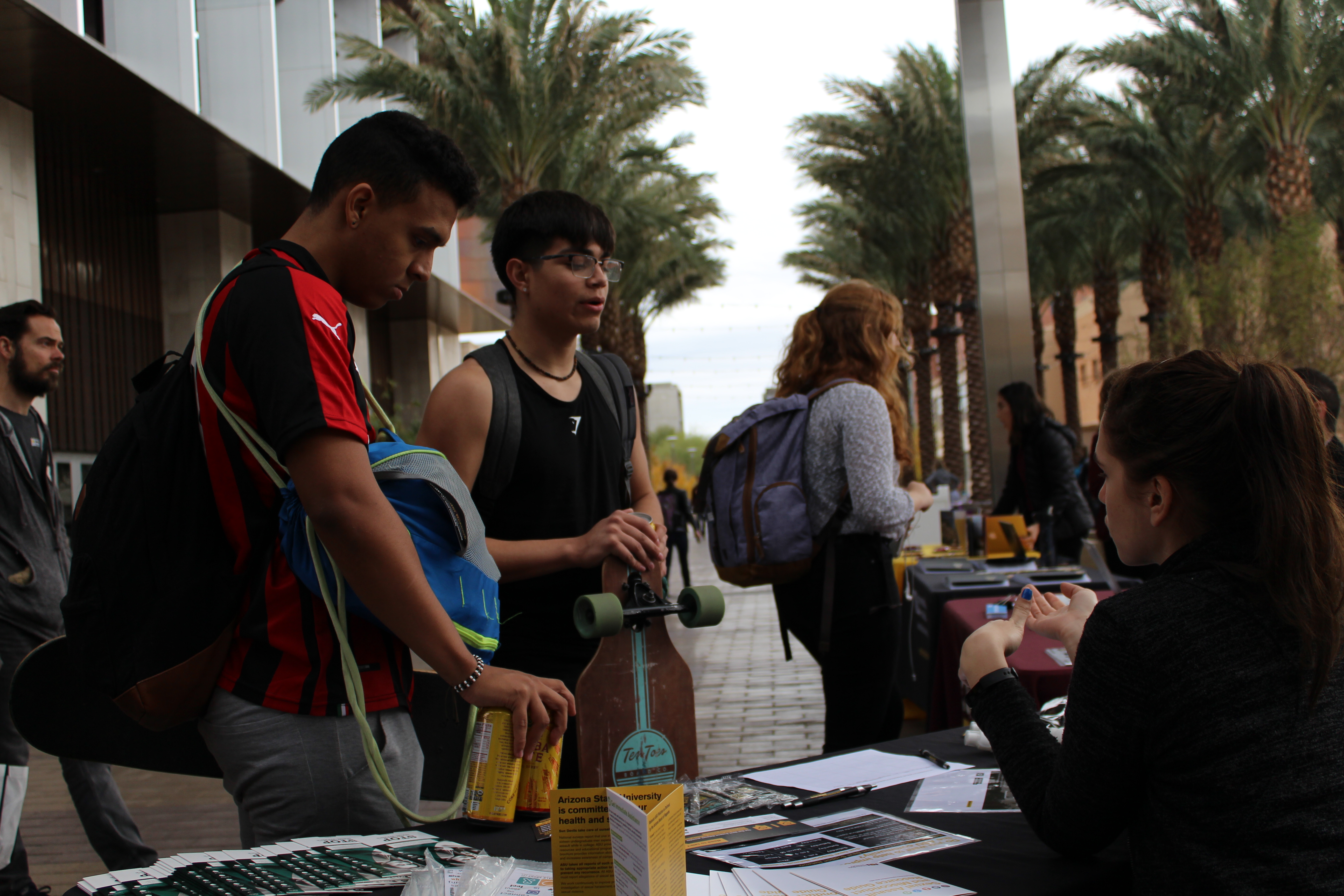It’s Stalking Awareness Month: Know it, name it, stop it
January marks Stalking Awareness Month, and Arizona State University students are committed to raising awareness and sharing resources with fellow Sun Devils.
Stalking means engaging in conduct that would cause a reasonable person distress or fear for their safety. Stalking can take many forms — including unwanted phone calls or texts, contact via social media, unwanted gifts, property damage and threats — and can occur alongside sexual and physical violence.
Students led tabling events across all ASU campuses Jan. 15 to commemorate the month and raise awareness regarding healthy relationships.

Students talk about Stalking Awareness Month at the Tempe campus in front of the Student Pavilion on Jan. 15, 2019.
Julie Alvarez, a peer education coordinator for the ASU Sexual and Relationship Violence Prevention Program said more often than not, people are likely to be stalked by someone they know.
“So if you’re in a relationship and your partner is following your location all the time, checking in who you’re with, that can be a form of stalking,” said Alvarez, a senior studying biochemistry.
According to the Stalking Prevention, Awareness and Resource Center, an estimated 1 in 6 women and 1 in 17 men will experience stalking in their lifetimes. Because stalking causes distress, it can affect people’s well-being and success.
“I feel like recognizing [sexual violence] at a college level is really important, because it’s making the next generation of people who go out in the workforce more aware, more able to be active bystanders, more able to recognize these signs or step up,” said Patricia Palade, a senior microbiology major at ASU who helped table for the Sexual and Relationship Violence Prevention Program.
The goal of the program in January is to raise awareness about stalking, make sure people know how to recognize signs of sexual and relationship violence and encourage people to be active bystanders.
Palade said that it’s important for students to help raise awareness because sometimes it’s easier for students to approach another student.
“It’s much easier to come up to a fellow student instead of coming up to a staff member or professor in order to ask for help for something, so having students help other students, they’re much more comfortable,” she said.
Students can learn more at sexualviolenceprevention.asu.edu, including reporting options and resources.